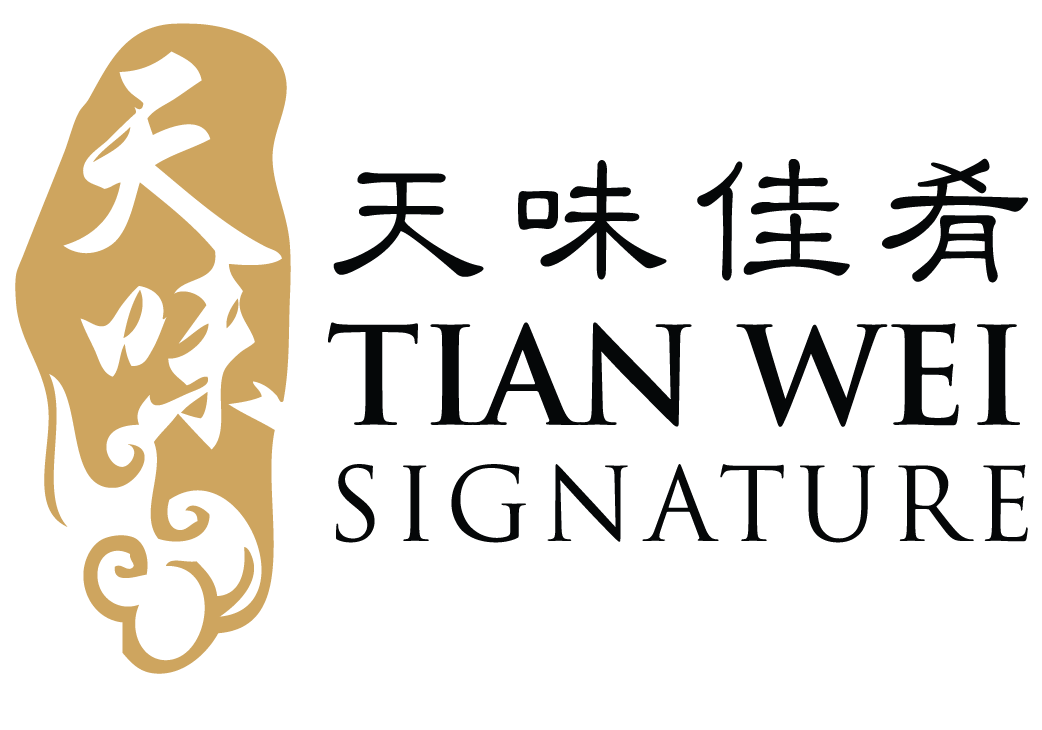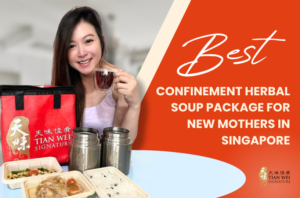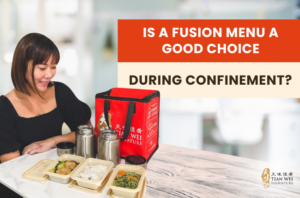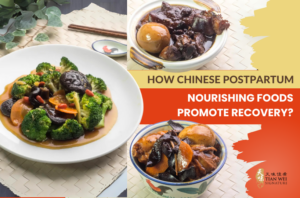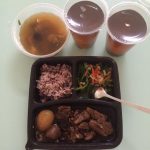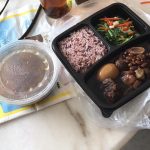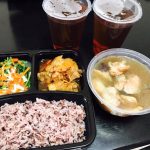81 Tagore Lane, TAG A, #01-11 Singapore 787502 ♦ Reservation : +65 6727 5599
Homemade vs. Catered Confinement Meals: Which Is Right for You?
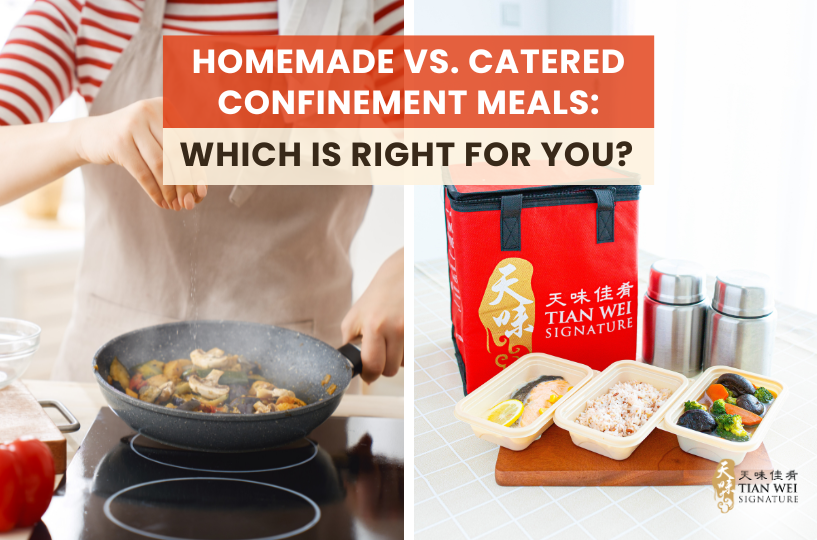
Confinement, a cherished tradition in many cultures, is the period after childbirth where mothers rest and rejuvenate while focusing on the care of their newborn. A significant aspect of this practice is the emphasis on nourishing confinement meals, believed to aid postpartum recovery and bolster milk production. In the age of choice, mothers grapple with deciding between homemade and catered confinement meals. Let’s dive into the merits and demerits of both to help you determine the best fit for your needs.
Homemade Confinement Meals: The Personal Touch
Advantages:
- Tailored to Preference: With homemade meals, you have complete control over ingredients, portion sizes, and flavours. This is particularly advantageous for mothers with specific dietary requirements or allergies.
- Freshness: Since you’re preparing meals as and when you need them, there’s a guaranteed level of freshness, free from preservatives or additives.
- Cost-effective: Generally, making meals at home is more economical than ordering from caterers. You can also buy ingredients in bulk or when they are on sale.
- Bonding Time: If family members help in meal preparation, it can be a lovely way to bond and allow them to participate in the confinement tradition. There’s a unique satisfaction in consuming food prepared by loved ones or even yourself. Each meal can evoke memories, strengthening emotional ties during the delicate postpartum phase.
- Control over Quality: You can ensure that every ingredient is of the highest quality, be it organic produce, free-range proteins, or artisanal condiments.
Disadvantages:
- Time-Consuming: Cooking and planning meals can be time-intensive, which might be challenging while caring for a newborn.
- Consistent Effort: Energy levels fluctuate postpartum. Balancing the needs of a newborn while ensuring regular, nutritious meals can lead to burnout, especially without a strong support system.
- Knowledge Required: If you’re unfamiliar with traditional confinement recipes, there might be a learning curve. Even the best home chefs can fall into a repetitive cycle, leading to a lack of diverse nutrients and potential meal fatigue.
Catered Confinement Meals: Convenience At Your Doorstep
Advantages:
- Hassle-free: The most significant advantage is convenience. With meals delivered daily, mothers don’t have to fret about meal planning, grocery shopping, or cooking. On days when everything seems overwhelming, knowing that a nutritious meal will be delivered can be a comforting safety net.
- Professional Expertise: Reliable caterers often have a deep understanding of traditional confinement foods. They ensure meals are nutritionally balanced and beneficial for postpartum recovery.
- Variety: Usually has a confinement food menu with different meals planned for each day, so mothers can enjoy a range of dishes without getting bored.
- Hygiene: Established caterers maintain high standards of cleanliness and hygiene, ensuring safe food for mothers and babies.
- Balanced Nutrition: Established caterers often rotate their menu to ensure mothers get a well-rounded nutrient intake over the week, from proteins and carbs to essential vitamins and minerals.
Disadvantages:
- Higher Cost: Catered meals can be more expensive over the duration of the confinement period.
- Less Personalization: While many caterers offer meal options, there might be limited scope for personal customization.
- Taste Variations: As with all foods, taste can be subjective. What one person finds delicious, another might find bland or overly seasoned.
- Fixed Portions: Unlike homemade meals, you can’t just scoop out a little extra of your favourite dish. Portion sizes are pre-determined.

Which One’s For You?
Your choice between homemade and catered confinement meals depends on several factors:
Convenience & Access To Cooking: You may want to consider this before making the choice. If you have family or friends who can assist with cooking, homemade meals can be manageable and enjoyable. If you foresee limited help from family or friends, post-delivery, catered meals can alleviate the cooking burden.
Dietary Preferences: For those particular about ingredients or with special dietary needs, homemade meals offer the flexibility needed. For instance, you may want to consider if you’re someone who prioritizes organic, GMO-free, or farm-to-table ingredients.
Cultural Expectations: In many cultures, family members take the lead in preparing confinement meals. Opting for catered meals might face resistance or lead to emotional conversations about upholding traditions. However, some mothers choose a blended approach – catered meals on hectic days and homemade feasts when they have the energy and inclination.
Postpartum Health: Depending on your recovery, you might need specific dietary inclusions or exclusions, which could influence your choice. Also, your emotional well-being should be considered. If cooking acts as a therapeutic outlet, embrace it. If it feels like a chore, know that it’s okay to seek external help.
In Conclusion
Both homemade and catered confinement meals have their pros and cons. The best choice is one that aligns with your personal needs, budget, and preferences. Whether you opt for the personal touch of homemade meals or the convenience of catered ones, remember that this period is about rest, recovery, and bonding with your newborn. And as with all things related to parenting and life, there’s no one-size-fits-all answer. Choose what feels right for you, and enjoy this special time to the fullest.
Tian Wei Signature is a well-known confinement catering in Singapore that delivers healthy and tasty dishes straight to your doorstep. Their confinement food catering in Singapore is a blend of traditional and fusion menus that ensures mums get both good taste and nutrition. Discover how Tian Wei Signature can be a part of your postpartum recovery journey.
